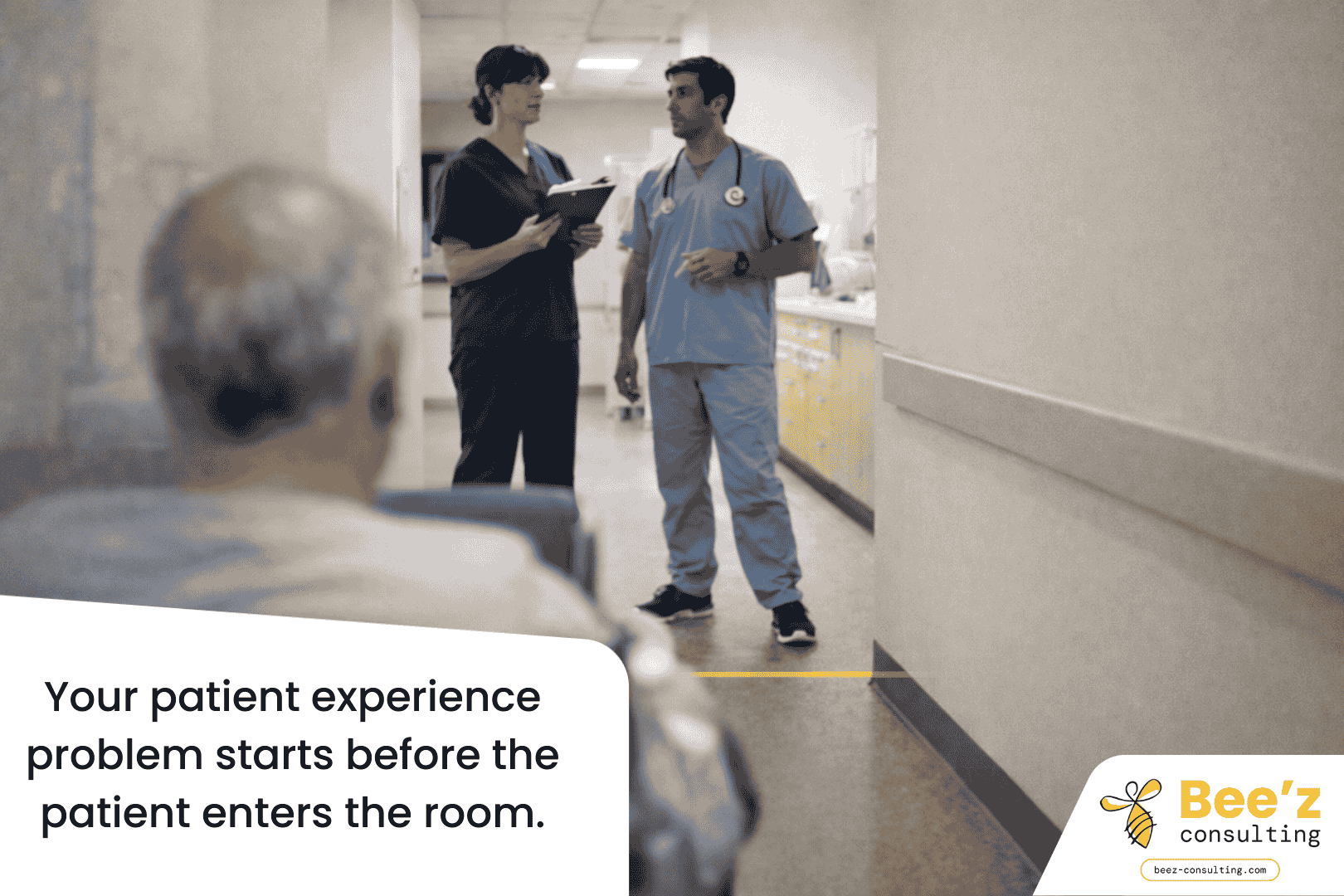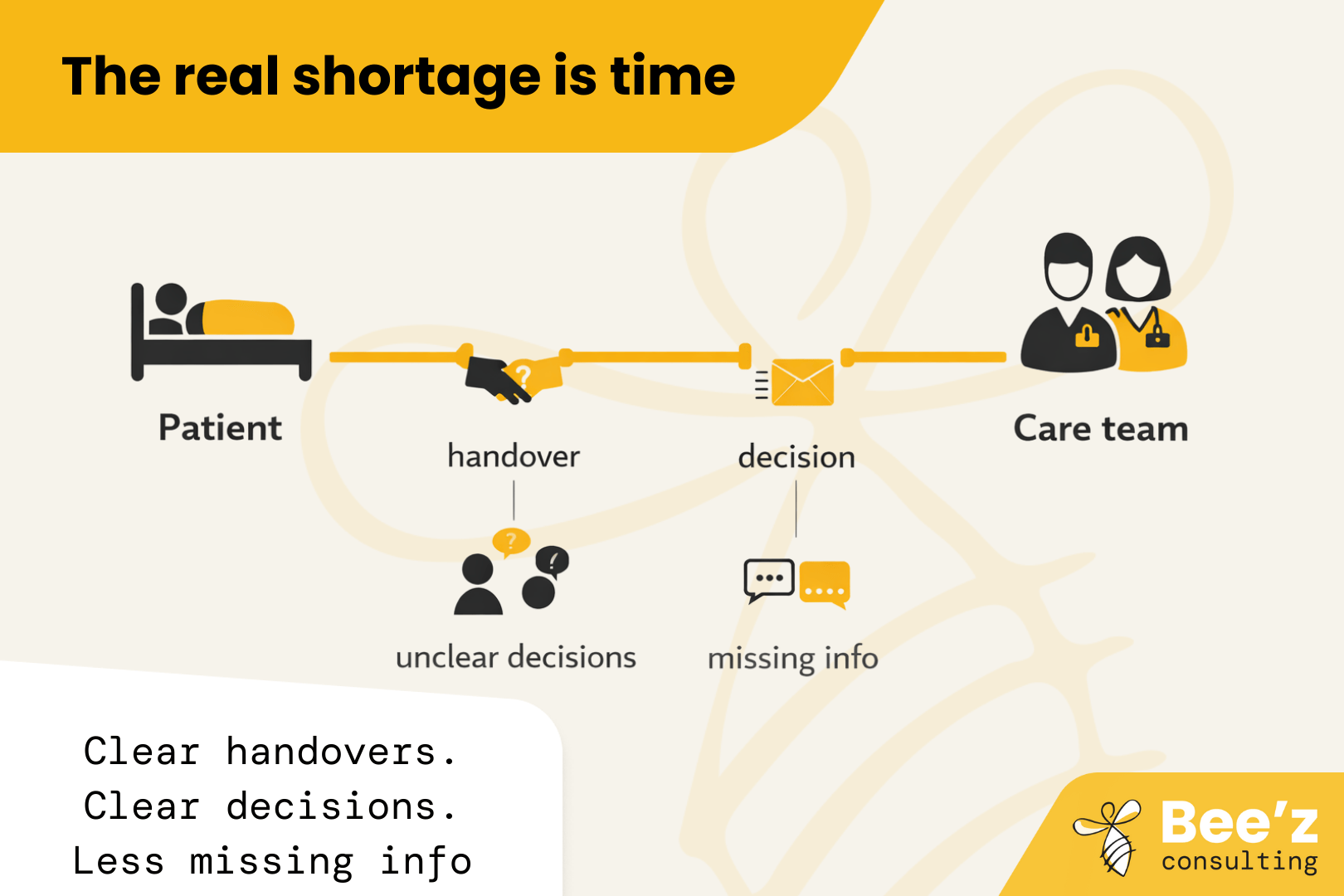
Healthcare is a sector as vital as it is complex, where mistakes can have serious consequences. And yet, when dysfunctions occur, the instinctive reaction in many organizations remains the same : find someone to blame.
This blame culture, though deeply rooted in some hospital or medico-social systems, hinders innovation, progress, and the quality of care. Conversely, building a culture of accountability fosters engagement and continuous improvement.
Let’s explore why and how shifting from a management style based on assigning individual faults to an accountability-driven approach enables the healthcare sector to thrive sustainably.
In many healthcare institutions, errors are still perceived as individual failures.
This reflex to look for “culprits” (in the accusatory sense of the word) has several consequences :
The blame culture creates a counterproductive environment, fueling tension, inefficiency, and increased risk for patients.
In contrast, an accountable organization doesn’t seek to “punish” mistakes, but rather to understand their root causes to prevent recurrence.
Accountability doesn’t mean the absence of consequences. It involves :
💡 Example : In a hospital that adopts this posture, a medication dosage error becomes an opportunity for improvement:
Result : caregivers feel heard, supported, and empowered. The organization progresses as a whole.
A common misconception is that accountability means everyone must “fend for themselves.” It’s exactly the opposite.
True accountability is based on :
In other words, we hold both teams and individuals accountable, by giving them the keys to succeed in their mission.
In this sense, accountability becomes a factor of cohesion: everyone knows what they must do, why they’re doing it, and how they can contribute to continuous improvement.
ALSO READ :
Implementing a culture of accountability in the healthcare sector leads to tangible results on multiple levels :
Many international models (notably in Nordic countries, Canada, or "magnet hospitals" in the USA) show that accountability is a strategic performance driver.
Moving from a blame culture to one of accountability can’t be declared overnight. It requires time, a shared vision, and most importantly, a structured change management process.
Here are the key levers to activate :
Leaders and managers must embody values of trust and accept their own zones of responsibility.
Inform, listen, acknowledge efforts, share successes and failures... Internal communication becomes one of the main pillars of cultural transformation.
Set up practice reviews, team meetings, quality indicators, etc. These rituals support improvement without judgment.
Train professionals in error management, compassionate communication, teamwork, problem-solving, etc.
Bringing in a change management consultant allows for an objective diagnosis, co-construction of realistic action plans, and sustained momentum over time.
As a change management consultant, I’ve found that moving toward an accountability culture is one of the most powerful - but also one of the most sensitive - changes to support. 🤔😳
This means :
🎯 Goal : create an organizational framework where everyone feels like a driver of progress, not just a spectator of dysfunction. 😉
The healthcare system can no longer afford to operate based on fear, silence, and isolation. In the face of challenges like workforce shortages and rising quality demands, only a culture rooted in trust and collaboration can build a resilient, attractive, and high-performing healthcare system.
Shifting from blame to engagement isn’t a utopia but a strategic necessity.
And it’s a path more and more institutions are taking - provided they’re well supported, with method and conviction.
Are you a transformation leader in your healthcare institution ?
Do you want to foster a sustainable and positive culture of accountability ?



AI is already inside hospital workflows. Learn how CEOs, COOs, CIOs, and CTOs can govern it in Switzerland and the EU, and build proof of control fast.


Patient experience starts before the bedside. Fix staff-to-staff handovers with two simple habits that cut friction, boost clarity, and build trust fast.


The real shortage is time with patients. “Thrive” is the missing lever. Fix daily workflow friction so hiring and retention finally pay off.
